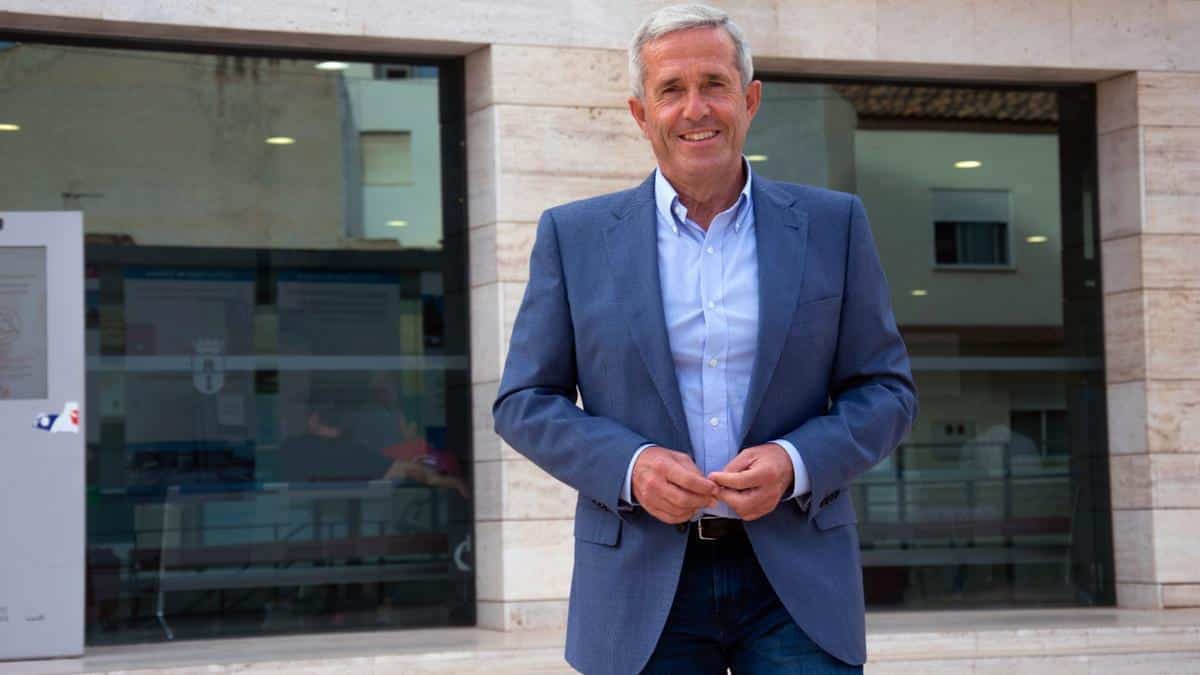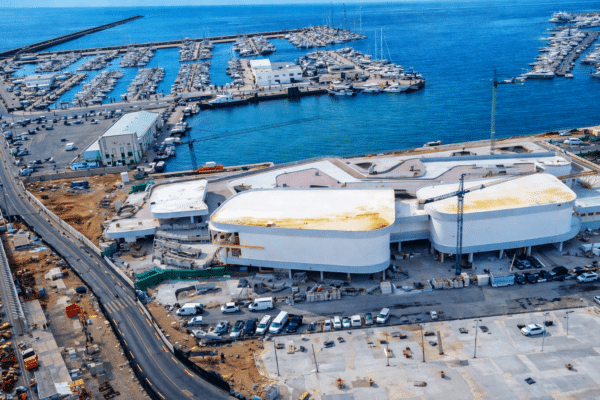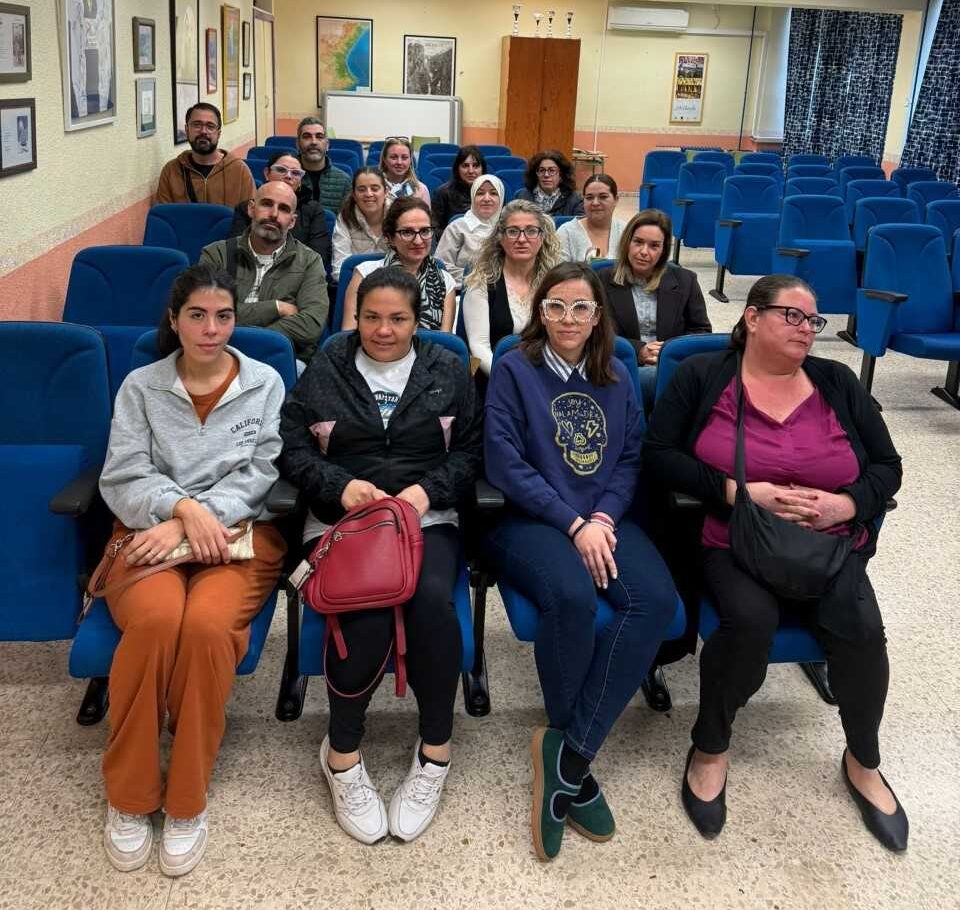
Latest Spanish News In English

Received a fine in Spain for not having the V16 beacon? Here is how you can challenge it.
PUBLISHED: 2026-02-22 08:56:08The first fine for not carrying the V16 beacon in a vehicle has been given in Spain, provoking debate among drivers about whether it can be appealed by citing the promised âgrace periodâ or moratorium that had been promised. The V16 beacon, a connected emergency light that replaces traditional warning triangles, became law on January 1, 2026, under new regulations in Spain. According to the Spanish Ministry of Transport, the controversial beacon (which costs between â¬30 and â¬50) is claimed to be a safer option for broken-down vehicles, while many disagree. Even the European Commission has chimed in, questioning the legality of legally obliging this new tech.
First fine given out: Details from Valencia
The first reported fining occurred on January 6 (Three Kingsâ Day in Spain), on the AP-7 motorway near Valencia. A Guardia Civil traffic officer issued an â¬80 fine (reducible to â¬40 with prompt payment) to a driver for ânot carrying the corresponding regulatory signal (V-16) in the vehicle. The ticket referenced breaches of Article 10.3 of the Traffic Law and Article 18.1 of the General Vehicle Regulations.
This case came to light through a company called Pyramid Consulting, a legal consultancy specialising in traffic fine appeals, which accessed the official punishment and highlighted the apparent contradiction with official statements.
What was the promised âgrace periodâ?
The DGT, which regulates Spanish roads, and government officials, including Interior Minister Fernando Grande-Marlaska and DGT Director Pere Navarro, repeatedly talked about a transitional âperiod of graceâ or flexibility after January 1. Drivers were to be âinformedâ rather than immediately fined, allowing time to adapt to the new connected beacon requirement.
However, no specific duration or official end date was ever defined in writing. This vagueness has created confusion and legal uncertainty, as enforcement by Traffic Guardia Civil officers has gone ahead without any formal suspension of fines or âgrace period2 at all. The fine in Valencia arrived just six days into the new rule, before some public reassurances were even issued, leading to claims of inconsistency between policy announcements and on-the-ground application.
Can you appeal a fine for not having a V16 beacon?
Yes, absolutely, you can file an appeal (recurso) against any fine for lacking the V16 beacon, as with most traffic fines in Spain. The lawyers at Pyramid Consulting argue that such fines are challengeable on the grounds of violating the principle of legitimate expectations (principio de confianza legÃtima). This legal doctrine requires public administration actions to be predictable, transparent, consistent, and in good faith. Drivers should be able to rely on clear official signals from authorities.
The consultancy says that Supreme Court jurisprudence, including a key ruling from February 9, 2004 (rec. 4130/2001), which protects people when they act based on conclusive external indications from the administration itself. Public declarations from the minister and DGT director promising flexibility and no immediate fines could qualify as such an indication, potentially making early enforcement unfair and disproportionate. In basic terms, the minister promised to do something, and then did nothing, and so itâs not the publicâs fault, is the idea here.
While success is not guaranteed, since the obligation has been legally in force since January 1, 2026, experts suggest appeals may succeed in cases from the initial weeks or months, especially if they reference the lack of a defined âgrace periodâ timeline and conflicting official messages.
Key takeaways for drivers
The V16 connected beacon has been law since January 1, for signalling breakdowns or accidents.
The fine for non-compliance is typically â¬80.
A âgrace periodâ was verbally promised, but nothing was ever signed off, leading to early fines like the one in Valencia.
Appealing remains an option, particularly by invoking legitimate expectations and recent public statements from authorities.
If youâve received a similar fine, please let us know in the comments below. What happened? Have you paid the fine, or would you ever appeal the decision? Let us know.

Swedish MP uses Tottenham Hotspur metaphor to criticise governmentâs economic strategy
PUBLISHED: 2026-02-22 08:17:22In a heated economic debate in Swedenâs parliament, Mikael Damberg drew international headlines after comparing the countryâs economic management to the fortunes of Tottenham Hotspur.
Speaking during a fiscal policy discussion in the Riksdag, Damberg, a senior figure in the opposition Social Democratic Party and Swedenâs former finance minister, used the football term âSpursyâ to criticise what he described as missed opportunities in government policy.
Dambergâs âSpursyâ critique in parliament
According to widely reported remarks from the debate, Damberg told lawmakers: âThe club have been given the name âSpursyâ, when you have opportunities but get no results ⦠Madame Speaker, that is precisely how the Minister of Finance is handling the Swedish economy.â
He argued that Sweden has strong underlying fundamentals but is failing to translate them into results. The comparison quickly travelled beyond Sweden, picked up by international media and football outlets alike.
The term âSpursyâ is commonly used in British football culture to describe a team perceived to have talent and resources but a tendency to underperform at decisive moments. By invoking the phrase, Damberg sought to frame his economic criticism in language that would resonate beyond traditional political rhetoric.
What have Tottenham got to do with Swedish politics?

Charity running challenge connects Dénia and GandÃa in support of childhood cancer
PUBLISHED: 2026-02-22 08:31:48A powerful solidarity initiative is set to bring together runners and supporters from across the Valencian coast on Sunday March 1, 2026, in a charity running event from Dénia to the GandÃa lighthouse designed to raise awareness and backing for the fight against childhood cancer.
Organised under the banner âfor more dreams and less fear,â the event marks the first in a series of ten charitable challenges planned for the year. Starting at 09:00 a.m. from the Maritime Museum in the Port of Dénia, participants will tackle a roughly 45-kilometre route along scenic trails and flat terrain toward GandÃa. While the full stretch is a significant undertaking, organisers emphasise that runners and walkers can join in for any part of the course, making the day accessible for a wider community of supporters.
At the heart of this campaign is community spirit and meaningful action. Beyond simply clocking up kilometres, the challenge carries a hopeful message: that sport can be a force for good, uniting people behind a cause far bigger than the race itself. The yellow ribbon symbol, synonymous with childhood cancer awareness, will feature prominently throughout the event to underline its purpose and broaden public understanding of the disease and its impact.
Community-centred sporting day with a meaningful cause
The initiative has a personal origin for its main promoter, a well-known local runner who has previously undertaken long-distance charity challenges. Through his social media presence, where heâs earned the nickname âthe marathon guyâ, he has used his athletic endeavours to support causes close to his heart and inspire others to get involved.
This Dénia-to-GandÃa run isnât just a test of physical endurance; itâs part of a larger effort to champion solidarity and shared purpose. By inviting the public to run even short segments of the route, the event creates an inclusive atmosphere that encourages friends, family and neighbours to come together, lend their support and show solidarity with children and families affected by cancer.
Proceeds from the challenge, including donations and any fundraising efforts linked to the day, will go toward organisations focused on childhood cancer support and research. In connecting this community-centred sporting day with a meaningful cause, organisers hope not only to raise funds but also to shine a light on the courage of young patients and the ongoing need for research and care resources.
Whether runners aim to complete the full course or simply join for a few kilometres, this charity challenge unites locals and visitors alike in a shared mission: to support the fight against childhood cancer, celebrate resilience, and foster a spirit of generosity that stretches from Dénia to GandÃa and beyond.

Safe and simple alarms
PUBLISHED: 2026-02-22 08:50:01In Spain, where daily life moves to the rhythm of early mornings, late dinners, and vibrant street culture, safety at home should never be complicated. Yet too often, alarm systems are marketed as complex, expensive, and difficult to manage. What most households truly need are safe and simple alarms â' systems that protect without overwhelming.
Security should not require a technical manual the size of a novel. Families, elderly residents, and small business owners deserve alarms that are intuitive, reliable, and quick to install. In a country where many live in apartment buildings and shared communities, straightforward systems with clear alerts and easy mobile integration make far more sense than elaborate, hard-to-maintain setups.
Spain has seen steady demand for home protection in recent years, particularly in urbanisations and coastal regions with seasonal residences. But higher demand should not mean higher confusion. The best alarm is one that works seamlessly: clear notifications, simple arming and disarming, and dependable customer support in English.
Moreover, simplicity improves safety. When systems are easy to understand, users are more likely to activate them consistently. Complicated technology often leads to user error â' forgotten codes, disabled sensors, or ignored alerts. Straightforward design reduces these risks.
Security is not about sophistication for its own sake. It is about peace of mind. Safe and Simple Alarms can empower households to protect what matters most â' without turning security into a burden. Practical protection should be accessible, transparent, and above all, easy to use. So contact Pete now on 632 258 576 or pete@safeandsimplealarms.com or check out the website www.safeandsimplealarms.com

Major transport upgrade for Benidorm and Marina Baixa as new bus network launches
PUBLISHED: 2026-02-22 08:00:49A major overhaul of public transport has officially rolled out across Benidorm and the wider Marina Baixa, marking a significant step forward for mobility in the region. The new concession, introduced under regional transport restructuring plans, brings expanded routes, improved frequency, and a fleet of 50 buses into daily operation.
The updated service aims to better connect coastal and inland towns while meeting the growing demand from residents, commuters, students, and tourists. With the areaâs population fluctuating seasonally, transport authorities have focused on reliability, efficiency, and broader territorial coverage.
The launch was presented in Callosa dâen Sarrià by regional officials, including Vicente MartÃnez Mus, who highlighted the importance of modernising infrastructure to support economic activity and sustainable travel across the comarca.
Expanded routes and faster connections across the region
The new concession strengthens links between inland municipalities such as La NucÃa, Polop and Callosa and key coastal hubs including Altea and LâAlbir. Direct services have been designed to reduce unnecessary stops, cutting travel times and improving punctuality.
Connections to essential services have also been prioritised. Routes now offer more consistent access to the Hospital de la Marina Baixa, making healthcare journeys easier for residents across surrounding towns.
Benidormâs central district benefits from a substantial boost in daily services, providing greater flexibility for workers and visitors travelling into the city. The reinforced timetable is expected to ease congestion, particularly during peak tourism periods when road traffic typically increases.
The transport upgrade forms part of a wider mobility strategy led by the Generalitat Valenciana, focused on encouraging public transport use and reducing dependence on private vehicles. By improving regional connectivity, authorities aim to support both environmental objectives and local economic growth.
Operationally, the network is projected to deliver more than 219,000 journeys annually, covering approximately 3.1 million kilometres each year. The 50-vehicle fleet ensures consistent coverage across the concession area while allowing capacity to adapt during high-demand periods.
For residents of Benidorm and the Marina Baixa, the new bus network represents more than just additional services â it signals a long-term investment in smarter, more accessible transport designed to meet the evolving needs of one of Spainâs most dynamic coastal regions.

Creativity and colour triumph at Benidorm Childrenâs Carnival 2026
PUBLISHED: 2026-02-22 07:12:54Colour, creativity and clear blue skies combined this weekend as Benidorm Childrenâs Carnival 2026 transformed the city into a vibrant celebration of imagination.
Families filled the streets as young participants showcased months of preparation in a parade bursting with fantasy costumes, music and theatrical flair. Blessed with good weather, the annual childrenâs carnival once again proved one of the most joyful highlights of Benidormâs festive calendar.
This yearâs event, organised by the Ajuntament de Benidorm, drew large crowds who gathered to watch groups and individual contestants compete in a dazzling display of originality. From elaborate handmade creations to whimsical characters inspired by fairy tales and fantasy worlds, the standard was notably high.
Taking first prize in the Group category was âHis Majesty and the Sweet Swarm,â a colourful and imaginative ensemble that delighted judges with its intricate detail and playful theme. The coordinated costumes, vibrant palette and choreographed presentation earned enthusiastic applause from spectators lining the parade route.
Winning costumes capture the carnival spirit
In the Individual category, top honours went to âLife is a Carousel,â a striking costume that captured movement and storytelling in a single design. The creation stood out for its craftsmanship and creativity, embodying the joyful spirit of carnival while showcasing impressive ingenuity.
The city council shared highlights from the day on its official Instagram account, celebrating what it described as a triumph of âfantasy, ingenuity and good weather.â Images posted online show smiling children in elaborate outfits, proud families and packed streets basking in sunshine.
According to official event information from Visit Benidorm, the childrenâs carnival forms part of the wider Carnival 2026 programme, which includes parades, music and community festivities across the city. However, it is the childrenâs parade that consistently captures hearts, placing young creativity centre stage.
As music echoed through the streets and confetti fluttered in the air, the atmosphere remained festive and inclusive â a reminder of carnivalâs roots in community participation and artistic expression.
With strong attendance, enthusiastic participation and favourable weather, this yearâs edition has been widely considered a resounding success. For many families, the Childrenâs Carnival represents more than a competition; it is a cherished tradition that brings generations together in celebration.
Benidorm once again demonstrated that when imagination leads the way, fantasy truly comes to life.

REVEALED: The âinstantâ hair miracle taking the Costa del Sol by storm â' and no surgery requiredÂ
PUBLISHED: 2026-02-22 08:00:00LETâS be honest, losing your hair is a nightmare. Whether itâs male pattern baldness, thinning crowns, or medical conditions, watching your thick head of hair disappear can shatter anyoneâs self-esteem.
For years, the options were not great: wear a hat, shave it off, or endure painful, expensive transplants.
But not anymore. There is a quiet revolution happening in Benavista, Estepona. Itâs painless, non-invasive, and the results are practically undetectable.
The woman behind the transformation
Meet Sharon. With over 30 years in the hair industry (previously owning her own salon in the UK) and 15 years as a master extensionist, sheâs seen it all.
Since relocating to Spain with her family in 2016, Sharon has worked across the coast, eventually opening Strands Salon in Benavista in October 2023 with business partner Katlin Fodor.
But it wasnât enough to just cut and colour. Sharon saw a gap in the market that was leaving locals desperate.
The catalyst? A loyal client suffering from frontal fibrosing alopeciaâa brutal autoimmune condition causing scarring hair loss around the hairline.
âThere was simply no one on the coast offering non-surgical solutions,â Sharon reveals. Refusing to let her client suffer, Sharon flew back to the UK for intensive specialist training.
She returned not just with a certificate, but with a mission: to bring world-class hair systems to men & women across the Costa del Sol.
High-tech hair: How it works
Forget the itchy, obvious wigs of the past. NHR (Non-Surgical Hair Replacement) uses state-of-the-art technology to integrate new hair with your existing strands, or simulate a scalp where there is none.
Operating out of a discreet, private clinic within the salon, Sharon offers a range of bespoke services that clients are calling âlife-changing.â
The NHR menu â' whatâs on offer?
? Mesh Integration: The heavy hitter. Perfect for moderate to severe thinning. A breathable mesh allows your natural hair to blend seamlessly with the system.
? The âSkalp Dâ: Ultra-modern and ultra-light. This micro-thin base mimics the scalp skin for a finish so natural, you have to touch it to believe it.
? Meshless Integration: Ideal for delicate areas or patchy thinning without the base.
? Menâs Systems: Custom-made toupees designed specifically to tackle male pattern balding head-on.
? Toppers & Wigs: From volume boosters for thinning partings to full-coverage,high-quality wigs.
? Hair Extensions: Simply want more volume or length? Sharon utilizes her 15+ years of extension expertise to give you the mane of your dreams.
Instant confidence
The biggest selling point? Itâs instant. You walk in with thinning hair and walk out with a full head of hair. No recovery time, no bandages, no scars â just an immediate return of confidence.
While many women already recognise the benefits of non-surgical hair replacement, Sharon believes far more men could transform how they feel about their appearance if they understood whatâs possible.
âSo many men think hair loss is something they just have to accept,â Sharon says. âBut thatâs simply not true. These techniques are widely used and respected around the world â thereâs absolutely no shame in wanting to look your best.â
Sharon now has over two-and-a-half years of specialist experience, regularly flying back to the UK for refresher courses and advanced training to stay at the forefront of the industry. She isnât just restoring hair; sheâs restoring confidence.
Every consultation is handled with empathy, transparency and the genuine care youâd expect from someone who truly loves helping people feel like themselves again.
Get the look
If you are struggling with bald patches, alopecia, or just donât feel like you anymore, you donât have to accept it.
NHR is bringing the best of British hair technology to the Spanish sun. Itâs trusted, itâs private, and it works.
Ready to turn back the clock?
CONTACT NHR TODAY
Phone/WhatsApp: +34 711 031 916
Instagram: @NHR_hair_systems
Facebook: NHR Facebook Page
Click here to read more Costa Del Sol News from The Olive Press.

2 bedroom Apartment for sale in Arenales del Sol with pool garage – ⬠315,000
PUBLISHED: 2026-02-22 09:01:15Discover this exclusive apartment in Arenales del Sol, one of the most sought-after areas of the Costa Blanca, where the Mediterranean light and sea breeze define everyday life. Located within a private gated community with five swimming pools and lush green areas, this home offers the perfect balance between comfort, views, and location. The property features two bedrooms and two bathrooms, ideal both as a permanent residence and as a holiday retreat. Its spacious corner terrace of 25 m² enjoys breathtaking sea views, the perfect spot to unwind, read, or watch the sunset in total privacyâ¦. See full property details
Arenales del Sol, Alicante
Click here to read more News from The Olive Press.

(SP)QATAR-DOHA-TENNIS-ATP QATAR OPEN 2026-MEN'S SINGLES-FINAL
PUBLISHED: 2026-02-21 00:00:00(SP)QATAR-DOHA-TENNIS-ATP QATAR OPEN 2026-MEN'S SINGLES-FINAL
International
Search News
«Back to Home
(SP)QATAR-DOHA-TENNIS-ATP QATAR OPEN 2026-MEN'S SINGLES-FINAL
22 Feb 2026, 13:15 GMT+
(260222) -- DOHA, Feb. 22, 2026 (Xinhua) -- Carlos Alcaraz hits a return during the men's singles final match between Carlos Alcaraz of Spain and Arthur Fils of France at the ATP Qatar Open 2026 tennis tournament final in Doha, Qatar, on Feb. 21, 2026. (Photo by Nikku/Xinhua)
Share article:
More Barcelona News
Access More
(SP)QATAR-DOHA-TENNIS-ATP QATAR OPEN 2026-MEN'S SINGLES-FINAL
Barcelona News.Net
Ahlawat, Sharma make cut as Sandhu misses out in Kenya
Barcelona News.Net
ATP roundup: Carlos Alcaraz triumphs in Doha
Barcelona News.Net
World No.1 Carlos Alcaraz clinches Qatar Open crown with dominant win over Arthur Fils
Barcelona News.Net
China accused of exporting Uyghur surveillance and intimidation worldwide
Barcelona News.Net
(MICO2026)ITALY-BORMIO-OLYMPIC WINTER GAMES-SKI MOUNTAINEERING-MIXED RELAY
Barcelona News.Net
FIH Men's Pro League: India go down 0-2 against Spain in their first match of Hobart leg
Barcelona News.Net
(SP)QATAR-DOHA-TENNIS-ATP QATAR OPEN-MEN'S SINGLES
Barcelona News.Net
Neymar hints at possible retirement in 2026, eyes FIFA World Cup return
Barcelona News.Net
ATP roundup: Carlos Alcaraz, Arthur Fils set for Doha final
Barcelona News.Net
Qatar Open 2026: Alcaraz beats defending champion Rublev to enter Doha final
Barcelona News.Net
\"Not the end...beginning of a long history\": President of CRUE, Eva Alcon on India-Spain Conference on Higher Education
Barcelona News.Net
Pau Gasol elected chair of IOC Athletes' Commission
Barcelona News.Net
India look to bounce back in Hobart Leg of FIH Men's Pro League 2025-26
Barcelona News.Net
MLS opener vs. RSL is part of Whitecaps' busy early stretch
Barcelona News.Net
Highlights of Milan-Cortina 2026 Olympic Winter Games Day 13
Barcelona News.Net
ATP roundup: Jakub Mensik shocks Jannik Sinner in Doha
Barcelona News.Net
(MICO2026)ITALY-BORMIO-OLYMPIC WINTER GAMES-SKI MOUNTAINEERING-WOMEN'S SPRINT
Barcelona News.Net
(MICO2026)ITALY-BORMIO-OLYMPIC WINTER GAMES-SKI MOUNTAINEERING-MEN'S SPRINT
Barcelona News.Net
Spanish President Pedro Sanchez departs after attending India AI Impact Summit
Barcelona News.Net
UEFA Champions League: Club Brugge snatch thrilling 3-3 draw against Atletico Madrid; Bodo/Glimt beat Inter Milan 3-1
Barcelona News.Net
Sign up for Barcelona News
a daily newsletter full of things to discuss over
drinks.and the great thing is that it's on the house!
All Barcelona News Headlines
(SP)QATAR-DOHA-TENNIS-ATP QATAR OPEN 2026-MEN'S SINGLES-FINAL
Barcelona News.Net
Ahlawat, Sharma make cut as Sandhu misses out in Kenya
Barcelona News.Net
ATP roundup: Carlos Alcaraz triumphs in Doha
Barcelona News.Net
World No.1 Carlos Alcaraz clinches Qatar Open crown with dominant win over Arthur Fils
Barcelona News.Net
China accused of exporting Uyghur surveillance and intimidation worldwide
Barcelona News.Net
(MICO2026)ITALY-BORMIO-OLYMPIC WINTER GAMES-SKI MOUNTAINEERING-MIXED RELAY
Barcelona News.Net
FIH Men's Pro League: India go down 0-2 against Spain in their first match of Hobart leg
Barcelona News.Net
(SP)QATAR-DOHA-TENNIS-ATP QATAR OPEN-MEN'S SINGLES
Barcelona News.Net
Neymar hints at possible retirement in 2026, eyes FIFA World Cup return
Barcelona News.Net
ATP roundup: Carlos Alcaraz, Arthur Fils set for Doha final
Barcelona News.Net
Qatar Open 2026: Alcaraz beats defending champion Rublev to enter Doha final
Barcelona News.Net
\"Not the end...beginning of a long history\": President of CRUE, Eva Alcon on India-Spain Conference on Higher Education
Barcelona News.Net
Pau Gasol elected chair of IOC Athletes' Commission
Barcelona News.Net
India look to bounce back in Hobart Leg of FIH Men's Pro League 2025-26
Barcelona News.Net
MLS opener vs. RSL is part of Whitecaps' busy early stretch
Barcelona News.Net
Highlights of Milan-Cortina 2026 Olympic Winter Games Day 13
Barcelona News.Net
ATP roundup: Jakub Mensik shocks Jannik Sinner in Doha
Barcelona News.Net
(MICO2026)ITALY-BORMIO-OLYMPIC WINTER GAMES-SKI MOUNTAINEERING-WOMEN'S SPRINT
Barcelona News.Net
(MICO2026)ITALY-BORMIO-OLYMPIC WINTER GAMES-SKI MOUNTAINEERING-MEN'S SPRINT
Barcelona News.Net
Spanish President Pedro Sanchez departs after attending India AI Impact Summit
Barcelona News.Net
UEFA Champions League: Club Brugge snatch thrilling 3-3 draw against Atletico Madrid; Bodo/Glimt beat Inter Milan 3-1
Barcelona News.Net
(SP)QATAR-DOHA-TENNIS-ATP QATAR OPEN 2026-MEN'S SINGLES
Barcelona News.Net
ATP roundup: Carlos Alcaraz charges into Doha quarterfinals
Barcelona News.Net
ATP roundup: Carlos Alcaraz continues into quarterfinal
Barcelona News.Net
AI is booming in India\": Netherlands PM Dick Schoof hails AI Impact Summit
Barcelona News.Net
\"There will be a big difference this time\": Angad Bir Singh as he returns to Indian team
Barcelona News.Net
PM Modi holds bilateral talks with world leaders on AI Summit sidelines
Barcelona News.Net
Greek PM arrives in Delhi to attend AI Impact Summit
Barcelona News.Net
UAE Crown Prince arrives in Delhi for AI Impact Summit
Barcelona News.Net
IMF Chief Kristalina Georgieva arrives in Delhi for India AI Impact Summit
Barcelona News.Net
Chennaiyin FC eyes positive start in ISL 2025-26 opener against Mumbai City FC
Barcelona News.Net
PM Modi holds talks with Kazakhstan PM on strengthening partnership
Barcelona News.Net
UN Secretary General Antonio Guterres arrives in Delhi for AI Impact Summit
Barcelona News.Net
Netherlands PM Schoof arrives in India for Global AI Impact Summit
Barcelona News.Net
\"Google can work with our talented students and professionals\": PM Narendra Modi on meeting Sundar Pichai
Barcelona News.Net
(SP)QATAR-DOHA-TENNIS-ATP-QATAR OPEN 2026
Barcelona News.Net
PM Modi meets with Finnish counterpart Orpo on sidelines of Global AI Impact Summit
Barcelona News.Net
PM Modi receives Spanish President Pedro Sanchez at Hyderabad House on sidelines of India AI Impact Summit 2026
Barcelona News.Net
Seychelles VP Sebastien Pillay arrives in India for Global AI Impact Summit
Barcelona News.Net
Maritius PM Navinchandra Ramgoolam arrives in India for Global AI Impact Summit
Barcelona News.Net
President of Spain Pedro Sanchez Perez-Castejon arrives in india to attend AI Impact Summit
Barcelona News.Net
ATP roundup: Carlos Alcaraz posts straight-set win in Doha
Barcelona News.Net
Ski mountaineering ready for Olympic debut in Italian Alps
Barcelona News.Net
American University in Dubai, IE University announce strategic partnership for Global BBA programme
Barcelona News.Net
Hockey India announces 24-member squad for FIH Men's Pro League 2025-26 Hobart leg
Barcelona News.Net
New leader in LALIGA, top five matchup in the Bundesliga, highlight soccer on ESPN networks this weekend
Barcelona News.Net
PSG fight back to beat Monaco in Champions League playoff
Barcelona News.Net
PSG fight back to beat Monaco in Champions League play-off
Barcelona News.Net
Osasuna stuns Real Madrid as Atletico cruises past Espanyol in La Liga
Barcelona News.Net
Medal table at Milan-Cortina Winter Olympics on February 21
Barcelona News.Net
Court compensates family which was locked in Dublin Airport toilet
Barcelona News.Net
(SP)QATAR-DOHA-TENNIS-ATP QATAR OPEN 2026-MEN'S SINGLES-FINAL
Barcelona News.Net
China accused of exporting Uyghur surveillance and intimidation worldwide
Barcelona News.Net
(MICO2026)ITALY-BORMIO-OLYMPIC WINTER GAMES-SKI MOUNTAINEERING-MIXED RELAY
Barcelona News.Net
Sounders, who have hole in midfield, open vs. Rapids
Barcelona News.Net
FIH Men's Pro League: India go down 0-2 against Spain in their first match of Hobart leg
Barcelona News.Net
Access More
News Releases
Barcelona News.Net's News Release Publishing
Service provides a medium for circulating your organization's
International News
Board of Peace launched in Washington, Trump pledges $10 billion
Barcelona News.Net
Man admits fraud in bid to claim ownership of New Yorker Hotel
Barcelona News.Net
Avalanche in California claims 8 lives, 6 tourists rescued
Barcelona News.Net
Shia LaBeouf arrested for assaulting two men in New Orleans
Barcelona News.Net
Trump's sweeping tariffs declared illegal by Supreme Court
Barcelona News.Net
Another U.S. president, another Middle East war
Barcelona News.Net
Bayer seeks closure with $7.25 billion Roundup deal
Barcelona News.Net
How Andrew's life has gone so rapidly downhill
Barcelona News.Net
Donald Trumpâs name will soon become a registered trademark
Barcelona News.Net
Deadly street protests in Iran were triggered by U.S.
Barcelona News.Net
Access More
Barcelona News.Net
News Releases
Privacy Policy
Terms and Conditions
© Copyright 1999-2026 Barcelona News.Net -
Mainstream Media Ltd.
All rights reserved.

Board of Peace launched in Washington, Trump pledges $10 billion
PUBLISHED: 2026-02-22 00:00:00WASHINGTON, D.C.: U.S. President Donald Trump announced at the inaugural Board of Peace meeting on February 19 that the U.S. was pledging US$10 billion to the board, but without any clarity on how the money would be used or where it would come from.
Pledging such a large amount requires congressional authorization.
Trump also announced that nine members have agreed to pledge $7 billion toward a Gaza relief package, and five others will deploy troops as part of an international stabilization force for the war-battered Palestinian territory.
Trump praised the promises made by different countries. But he still faces a major problem: getting Hamas to give up its weapons. This issue could undermine or even scuttle the Gaza ceasefire deal, which his administration has called a major foreign policy success.
The money promised, though important, is only a small part of the estimated $70 billion needed to rebuild Gaza after two years of war between Israel and Hamas. Trump thanked allies for their promises of money and troops, but he did not say when these plans would actually begin.
\"Every dollar spent is an investment in stability and the hope of a new and peaceful region,\" Trump said. He added, \"The Board of Peace is showing how a better future can be built right here in this room.\"
The Board of Peace was created as part of Trump's 20-point plan to end the Gaza conflict. Since the October ceasefire, however, his idea for the board has grown bigger. He now wants it not only to help bring lasting peace between Israel and Hamas, but also to help solve conflicts around the world.
Still, the Gaza ceasefire remains weak and uncertain. Trump's larger plans for the board have raised concerns that he may be trying to create something that competes with the United Nations.
Responding to criticism, Trump said his board would actually make the United Nations stronger in the future.
\"Someday I won't be here. The United Nations will be,\" Trump said. \"I think it is going to be much stronger, and the Board of Peace is going to almost be looking over the United Nations and making sure it runs properly.\"
Warning to Iran
While calling the meeting a success that could bring long-term peace to the Middle East, Trump also warned Iran.
Tensions between the United States and Iran are high. Trump has ordered one of the largest U.S. military buildups in the region in decades. One aircraft carrier group is already there, and another is on its way. He warned Iran that the U.S. could take military action if Iran does not give up its nuclear program, stop developing ballistic missiles, and stop supporting extremist groups like Hezbollah and Hamas.
Several countries â Indonesia, Morocco, Kazakhstan, Kosovo, and Albania â promised to send troops for a Gaza stabilization force. Egypt and Jordan said they would help train police.
The troops will first go to Rafah, a city that has been badly destroyed and is mostly empty. It is under full Israeli control. The U.S. government plans to start rebuilding efforts there.
Countries that promised money for rebuilding include Kazakhstan, Azerbaijan, the United Arab Emirates, Morocco, Bahrain, Qatar, Saudi Arabia, Uzbekistan, and Kuwait, Trump said.
Nearly 50 countries, including the European Union states, sent representatives to the meeting. Germany, Italy, Norway, Switzerland, India, and the United Kingdom were among more than a dozen countries that attended as observers but did not join the board. China and Russia have so far refused to join and have not sent their representatives.
Most countries sent senior officials. A few leaders, including Indonesian President Prabowo Subianto, Argentine President Javier Milei, and Hungarian President Viktor Orbán, traveled to Washington in person.
\"Almost everybody's accepted, and the ones that haven't, will be,\" Trump offered. \"And some are playing a little cute â it doesn't work. You can't play cute with me.\"

Inside Spain: Does Japan have the solution to Spaniards' longevity problem?
PUBLISHED: 2026-02-21 09:06:12Unless you live in Madrid or Barcelona, the chances are that youâve noticed the very high proportion of elderly people in Spain.
Hanging out together on park benches and ever-present in the local markets, these abuelos are testament to how people in Spain live long and able-bodied lives.
In fact, by 2040 Spain will have the highest life expectancy on the planet together with Japan.
This was the focus of the conference 'Japan, the Spain of 2040: Challenges and Solutions for the National Health System of the Future', held in Madrid this week.
Currently, 20.1 percent of the Spanish population is over 65 years old, a figure still far from Japanâs 29.3 percent, but which already anticipates a demographic change of great magnitude.
Of course, Spaniardsâ longevity is something to be celebrated, including by foreigners who intend to live here long-term or retire here.
The nutrient-rich Mediterranean diet with plenty of fresh fruit and veg, the fantastic Spanish public healthcare system, and a lifestyle which emphasises walking and strong social bonds all play a part in making Spaniards live longer.
Currently, Spanish menâs average life expectancy is 84.01 years and women live to an average of 86.53 years of age (2024 figures from the Spanish government).
For comparison's sake, in the UK it's 79 for males and 83 for females, whereas in the US it's 75.8 for men and 81.1 for women.
READ ALSO: Why do people in Madrid live longer than anywhere else in the EU?
But what will it mean for Spainâs beloved sanidad pública (public health) when it has even more elderly people to care for in 15 years?
Even though elderly Spaniards are generally very resilient, increased life expectancy always implies a greater prevalence of age-related diseases.
âJapan is today the mirror of Spain in 2040 and offers us valuable lessonsâ regarding âintegrated long-term care, the efficient use of resources and the culture of prevention,â said Ana Zubeldia, CEO and Head of Oncology at the Spanish branch of Japanese pharmaceutical company Daiichi Sankyo.
That âculture of preventionâ applies to cancer, the leading cause of death in Spain and with a projected increase of over 300,000 new diagnoses annually in the coming years. Cardiovascular diseases are also the leading cause of death among women. Both of these represent a significant portion of Spainâs current healthcare challenge.
With more than 36 million over-65s, Japanâs rapidly ageing population has fuelled what the World Economic Forum dubbed the âlongevity economyâ.
In essence, this heightened demand for healthcare, nursing and lifestyle industries has meant that Japan has become very adept at taking care of its elderly population.
This includes everything from conversation partner services to AI-driven care robots, although we donât see the latter taking off in Spain (at least initially).
The World Economic Forum cites a study that shows that Japanâs elderly population has become âfive years youngerâ in terms of health status and employment rates over the past 15 years.
Thatâs essentially what Spain and its healthcare system are aiming for - an efficient heath network focused on prevention that ensures that the current 10 million over-65s - and millions more in the coming decades - donât require as much medical assistance as they currently do.
Wishful thinking perhaps, especially without the fair pay and working conditions for healthcare staff that has led doctors across in Spain to stage four-day strikes every month.
The Spanish government may also have to dedicate more than the current 7 percent of its budget to healthcare, as well as make it easier for foreign healthcare workers to be employed without having to wait for years to have their qualifications recognised through the process called homologación.
Spain now needs between 100,000 and 130,000 nurses to meet EU ratios. Furthermore, 43 percent of doctors in Spain are over 55 years old, meaning tens of thousands will retire in the coming decade.
And at the current rate, Spain will have a deficit of 800,000 carers by the year 2040, when the country is set to be the oldest in the world.
As alarming as these figures may be, Spanish healthcare remains among the best in the world. Let's just hope it can adapt to the upcoming population challenges.

Pilar de la Horadada Mayor Demands End to AP-7 Toll After Fresh Price Rise
PUBLISHED: 2026-02-21 09:00:13The mayor of Pilar de la Horadada has renewed calls for the AP-7 motorway toll to be scrapped following another increase in charges, warning that the rising cost is hitting residents, workers and tourists.
Mayor José MarÃa Pérez said the latest hike has made routine journeys to Alicante increasingly expensive, despite the toll being permanently removed on other stretches of the same motorway. While the AP-7 bypass around Alicante became toll-free in December 2025, Pilar de la Horadada remains excluded.
According to Pérez, the high-season toll for light vehicles â including cars, motorcycles and vans â has risen to â¬5.10, compared with less than â¬5 previously. In low season, drivers now pay â¬2.85. High season applies from June to September, as well as during the Easter holiday period.
He warned that the cost of travelling to Alicante now totals â¬20.40 for a relatively short distance, calling it âa heavy burdenâ for daily users. The mayor also raised concerns about knock-on effects on road safety and emergency access, particularly to Torrevieja Hospital, as drivers increasingly avoid the toll by using the N-332.
This diversion, he said, is placing added strain on roads through Torrevieja and San Miguel de Salinas.
Pilar de la Horadada Town Council is now coordinating with neighbouring municipalities to demand the tollâs removal and has contacted the Ministry of Roads to seek a solution. Pérez described the situation as âan injusticeâ for the town, noting that the concession runs until 2048 and disproportionately affects local residents.

Torrevieja Port Leisure Centre to Open by Late April or Early May
PUBLISHED: 2026-02-21 08:52:00The long-awaited Paseo del Mar leisure complex at the Port of Torrevieja is now scheduled to open definitively by the beginning of May, according to sources from the concessionaire. This marks the latest and final target date after several postponements throughout 2024 and 2025. The previous public commitment had pointed to an Easter opening.
Construction of the main structures was largely completed some time ago, with only finishing works and interior adaptations still pending. Progress had slowed due to delays in the surrounding municipal redevelopment works â essential for access to the complex and for upgrading the waterfront area of central Torrevieja â which fall under the responsibility of the City Council. Although these public works are now underway, they remain behind schedule.
Intensive Work, Including Weekends
For several weeks, the concessionaire and the hospitality operators â predominantly franchise brands â have been working intensively, including Saturdays and Sundays, to finalise common areas and complete interior fit-outs.
These brands reflect a mix of fast-food, casual dining, café and restaurant concepts aimed at both local residents and tourists visiting the new waterfront leisure destination and are reported to include McDonaldâs, Vips, Ginos, Casa Carmen, Lateral, La Rollerie and Starbucks, among others.
The project covers more than 20,000 square metres of concession land, with buildings reaching volumes equivalent to four and five storeys. Of this, 8,500 square metres are allocated to 27 commercial premises. Commercialisation has been managed by Ã'ptima Global Services (OGS), which reports that 80% of the space has been formally signed and 100% committed.
In addition to hospitality venues, the complex will feature a multiplex cinema operated directly by the concessionaire and an American-style bowling alley run by the Quereda family, pioneers of the bowling sector in Spain.
Current works focus primarily on image and finishing elements: LED lighting systems â already visible in recent weeks â large-format digital screens, corporate branding, interior design, and landscaped green areas. The concessionaire has also completed the access walkway connecting the complex to the Vista Alegre promenade.
Opening Despite Delays in Surrounding Works
Paseo del Mar will open regardless of the other delays in the adjacent urban redevelopment projects led by Torrevieja City Council.
By June, part of the fairground esplanade is expected to be available again for its traditional use. At present, only a concrete slab, new lighting installations and a municipal building â not included in the original port project â have been completed, however, the Torrevieja May Fair will once again have to be held at the concert and market venue next to Avenida Delfina Viudes.
The pedestrian footbridge along the Levante breakwater remains at a foundation stage, with no visible superstructure. Redevelopment works continue in the area surrounding the Customs House, along the waterfront promenade between MÃnguez Dock and the new fish market, and within the fairground zone.
Capdepont Square and Traffic Access
Redevelopment of Capdepont Square began several weeks ago with the demolition of its single-storey building, formerly the Pangea office. The objective is to create a new road connection between the Waldo Calero roundabout and Calle Rambla Mateo, intended to become the principal exit route for traffic from the city centre waterfront once all works are completed.
However, following demolition, progress stalled. The City Council had initially stated that the squareâs distinctive ficus and palm trees would be preserved, though integrating a roadway within the existing space without removing these trees presents significant design challenges.
The approximately 150 artisan market stalls, commonly known as the âhippy market,â currently relocated to Avenida de la Estación, also have no confirmed return date. Plans envisage redistributing them around the Customs House area and along the new pedestrianised zone created on the former Paseo de la Libertad, adjacent to the fairground.
â¬50 Million Investment and 50-Year Concession
The concessionaire consortium, led by Empresas del Sol and Enrique Riquelme alongside other major construction and property development firms, has invested more than â¬50 million in the project â significantly exceeding the initial â¬20 million forecast.
This total includes approximately â¬5 million allocated to constructing the new fish market and fully refurbishing the Customs building for use by the Generalitat Valenciana. The regional government also required the construction of the port access road, which remains unfinished pending completion of the Levante breakwater footbridge.
The concession grants a 50-year operating period. Due to port-use regulations, commercial activity within the complex is restricted to hospitality and nautical-related businesses. The development now fully occupies the former port landfill area adjacent to the bay.
The only facility delivered on schedule within the commercial zone was the underground port car park, operated by Telpark, which opened approximately one year ago and which has significantly alleviated acute parking shortages in Torreviejaâs town centre.

GUN LICENSING REORG AS ELDA OFFICE SHUTS ITS DOORS
PUBLISHED: 2026-02-21 09:19:43Residents in Elda are being told theyâll now have to travel further for firearms paperwork after the Guardia Civil confirmed the closure of its Arms and Explosives Intervention (IAE) office in the town.
The Elda office will officially close from Monday, 23 February, forcing gun owners and licence holders to deal with neighbouring branches instead. Authorities insist the move is part of a restructuring plan designed to deliver a âmore efficient and higher-quality serviceâ.
From now on, all procedures previously handled in Elda will be split between the IAE offices in Elche, San Vicente del Raspeig and Villena, which will take over responsibility for local users.
In an effort to soften the blow, the Guardia Civil has begun sending personalised messages to affected residentsâparticularly those with urgent paperwork pending, such as licences close to expiryâinforming them where and how to complete their procedures.
Officials also reminded the public that appointments are mandatory for all Arms and Explosives procedures. Appointments can be booked by calling 060, and are available at offices across the province, including Alicante city, Alcoy, Benidorm, Denia, Elche, Orihuela, San Vicente del Raspeig, Torrevieja and Villena.
Despite complaints about longer journeys, the Guardia Civil maintains that the reorganisation will ultimately streamline services and reduce delays.

What is Involved when Working at Height
PUBLISHED: 2026-02-21 06:48:15According to data from the Health and Safety Executive, the most common cause of fatal injury in the workplace is height. If youâre working at height, then youâll need to take special precautions to protect yourself and those around and beneath you. In many cases, this is a legal requirement.
What Counts as âWorking at Heightâ â How the Law Defines It
So, how high do you have to be before youâre considered âat heightâ? Is it one storey? Two? Ten?
The simple answer is that youâre at height if thereâs a chance that youâll fall and suffer a personal injury. So, if youâre on the first rung of a stepladder, youâll be classed as working from height. Often, it isnât the distance itself that increases the risk, but the likelihood that weâll fall in an awkward way. If you fall two feet onto your back, you might be worse off than a person who falls ten feet onto their feet.
There is, however, a correlation to be aware of. Obviously, the greater the distance between the ground and your platform, the greater the scope for injury. Mezzanine flooring, open edges, and shafts should all be considered dangerous.
Legal and Regulatory Responsibilities â What Employers and Workers Must Do
Employers have a legal duty to provide employees with a safe working environment. This might mean ensuring that work at height is conducted only after the necessary training and equipment have been provided, and after the risks have been appropriately weighed.
Workers have their own responsibilities, too. They must take responsibility for their own safety, and comply with instructions issued to them by their employers.
Risk Management: How to Avoid Falls â Planning, Equipment & Safe Methods
Mitigating risk means following a loose hierarchy of measures. If itâs possible to entirely avoid working at height, then doing so might allow you to cut the risk to zero. This is often the preferable approach. Extendable tools might be a means of making this happen.
Whatever measures will prevent you from falling must be considered. Scaffolds and guard rails, as well as harnesses, might be worthwhile. If itâs not reasonably possible to reduce the risk of an accident at work to the point that itâs negligible, then fall-arrest systems might be mandatory. Think of a person cleaning the windows of a skyscraper, with the help of a fail-safe rope tethered to a harness.
Competence, Training, Supervision â Why Experience and Awareness Matter
The most effective safety tool in any given workplace is the human brain. With the right training and culture, it can spot hazards before they have a chance to cause harm, and make the best possible use of PPE and other equipment.
Through training, supervision, and the inculcation of the right habits, itâs possible to vastly reduce the risks posed by working at height.
Photo by Kelly at Pexels

Orihuela school community urges urgent cross-department talks over maintenance plan
PUBLISHED: 2026-02-21 09:23:01The educational community in Orihuela has reacted cautiously to the town hallâs new 2026â'2030 School Maintenance Plan, welcoming the promised investment but warning that delays and staff shortages could undermine its impact.
At a meeting held on 18 February at CEIP Josefina Manresa, headteachers of public schools and representatives of parentsâ associations met with the Councillor for Education to review the planâs details. While they praised the presentation of a structured programme with clear figures and a timetable, directors and families expressed concern over slow administrative procedures and a lack of dedicated personnel.
According to those present, many schools share the same unresolved problems: ageing infrastructure, delayed repairs, poor oversight of works and an inefficient system for handling maintenance requests. They described the situation as âunsustainableâ and called for a coordinated, urgent response from the entire municipal government, not just the Education Department.
The plan foresees â¬6.6 million in investment over four years and will be put out to European tender, with contracts not expected to be awarded until October or November 2026. Parentsâ representatives remain sceptical about both the tender process and the timeline. As an interim measure, the council has announced 21 minor contracts, one per school, of up to â¬15,000 each, which could be operational within a month.
Directors and families also criticised what they see as a constant passing of responsibility between the town hall and the regional education authority, leaving schools stuck in bureaucratic limbo while buildings deteriorate.
As a result, the school community has unanimously demanded an urgent, cross-department working group, involving Education, Infrastructure, Human Resources and the Mayorâs Office. They insist that staffing shortages and coordination failures cannot be solved by Education alone, and say they will closely monitor deadlines, accountability and follow-up.

181 Bus Stops to Be Modernised in Torrevieja
PUBLISHED: 2026-02-21 09:16:07Torrevieja Council has approved a project to upgrade, modernise and rationalise bus stops across the municipality as part of the new urban transport service. The initiative reorganises routes, improves accessibility and renews infrastructure, aligning the network with the new line planning while ensuring compliance with regional accessibility and mobility regulations.
The project will be rolled out progressively once the new transport contract is finally awarded, with work beginning alongside the launch of the service. It supports a redesigned public transport model based on new routes, increased frequency and more efficient journey planning. This will involve removing obsolete stops, creating new ones in strategic locations and fully adapting existing stops to current standards.
In total, 181 bus stops will be upgraded across the entire municipality of Torrevieja, including urban centres, residential neighbourhoods, beach areas and surroundings of natural parks. The stops are divided into five types, each tailored to its location and demand, ranging from large, fully equipped stops capable of accommodating two buses at once to simpler information totems in lower-density areas. The most complete stops will include shelters with sun protection, digital passenger information systems, seating, advertising panels and, in selected cases, self-cleaning public toilets.
All interventions will guarantee step-free access, tactile paving, adequate pedestrian space and seamless integration with existing urban infrastructure. The works will also include pavement renewal, curb ramps, underground services, new foundations and the installation of modern canopies and information systems.
Alongside the physical improvements, the new concession will introduce cleaner, non-fossil-fuel vehicles and advanced technology, reinforcing Torreviejaâs commitment to sustainable, accessible and digitally connected urban mobility that better serves residents and visitors alike.

British patient found dead inside Benidorm hospital four days after his disappearance
PUBLISHED: 2026-02-21 09:28:02A 54-year-old British man has been found dead inside a hospital in Benidorm, four days after he vanished while admitted for surgery â in a case that has shocked both staff and family.
Peter Jackson was reported missing from IMED Levante Hospital on 7 February after his wife arrived at the hospital and discovered his bed empty. She was initially told he had left the building despite not having been formally discharged, something he had done once before last October. Fearing a repeat, she searched his home and usual locations before reporting him missing to the National Police.
For days, police circulated his photograph and carried out searches across Benidorm and surrounding areas, including ravines and wooded zones. Reports of possible sightings, even as far away as Murcia, led nowhere.
The breakthrough came when investigators confirmed the man had never left the hospital. A full search of the building was launched, and on 11 February officers made a grim discovery on the sixth floor. His body was found trapped face down in a narrow gap between a metal platform and a utility shaft wall containing electrical cabling.
Although electrocution was initially suspected, the autopsy ruled this out. None of the cables were damaged or carrying lethal current. Forensic results confirmed the man died from asphyxiation, likely after becoming wedged in the confined space and being unable to free himself. One line of investigation suggests he may have been attempting to retrieve personal belongings.
The case has raised serious questions about hospital safety, supervision and how a patient could go missing â and remain undiscovered â inside a functioning medical facility for four days.

Horadada Cinema closes its doors: a summer ritual fades into memory
PUBLISHED: 2026-02-21 09:04:37A chapter of summer life in La Torre de la Horadada has quietly come to an end. After more than 40 years of lighting up warm evenings with films under the stars, the much-loved Horadada Cinema has closed for good.
For generations of residents and holidaymakers alike, the open-air cinema on Avenida de las Villas was far more than a place to watch a film. It was a ritual: balmy nights, the murmur of the crowd, cushions tucked under arms, and those unmistakable little blue chairs lined up as the sun slipped away. Summer, for many, did not truly begin until the Horadada Cinema opened.
The farewell was announced on Instagram with a message heavy with emotion: âAfter more than 40 years of summer cinema, the time has come to say goodbye forever. Thank you for joining us all these years; you will always be in our memories.â
The response was immediate and heartfelt. Followers shared a sense of collective loss, with comments ranging from quiet sadness to raw regret. âA part of me has broken,â wrote one user. âThank you for so many years of summer entertainment.â Others looked back with tender nostalgia: âReady to return with our cushions to those little blue chairs.â
With its closure, La Torre de la Horadada loses not just a cinema, but a shared memory â a place where summers were measured in films, laughter and warm night air. What remains now are the stories, and the feeling that something simple and irreplaceable has slipped away.

Torrevieja approves â¬133,000 school-based drug prevention programme
PUBLISHED: 2026-02-21 09:12:37The Local Government Board of Torrevieja has approved the tender process to introduce universal drug and addiction prevention programmes in all primary and secondary schools across the city.
The contract, with an estimated total value of â¬133,394, will run initially for two years (2026â'2027), with the option of a two-year extension through to 2029. It will fund specialised prevention sessions delivered in schools in line with programmes designed by the councilâs Community Unit for the Prevention of Addictive Behaviours.
According to the approved documentation, the service will ensure age-appropriate planning and delivery of sessions aimed at promoting healthy lifestyles, strengthening protective factors against addiction, and providing educational tools for both pupils and the wider school community.
The base tender budget for the first two years stands at â¬66,697, with the full four-year value doubling if the extensions are taken up. No provisional guarantee is required from bidders, while the successful contractor must provide a definitive guarantee equivalent to 5% of the final contract price. A 15-day guarantee period will apply following completion of the final scheduled activity.
The initiative forms part of Torrevieja City Councilâs broader public health and prevention strategy, which prioritises early and universal intervention within schools as a key environment for education in values and healthy habits.
With this programme, the council says it is reinforcing its commitment to working closely with the educational community and specialist professionals to deliver high-quality prevention measures and support young people in tackling drug dependency and other addictive behaviours.

































